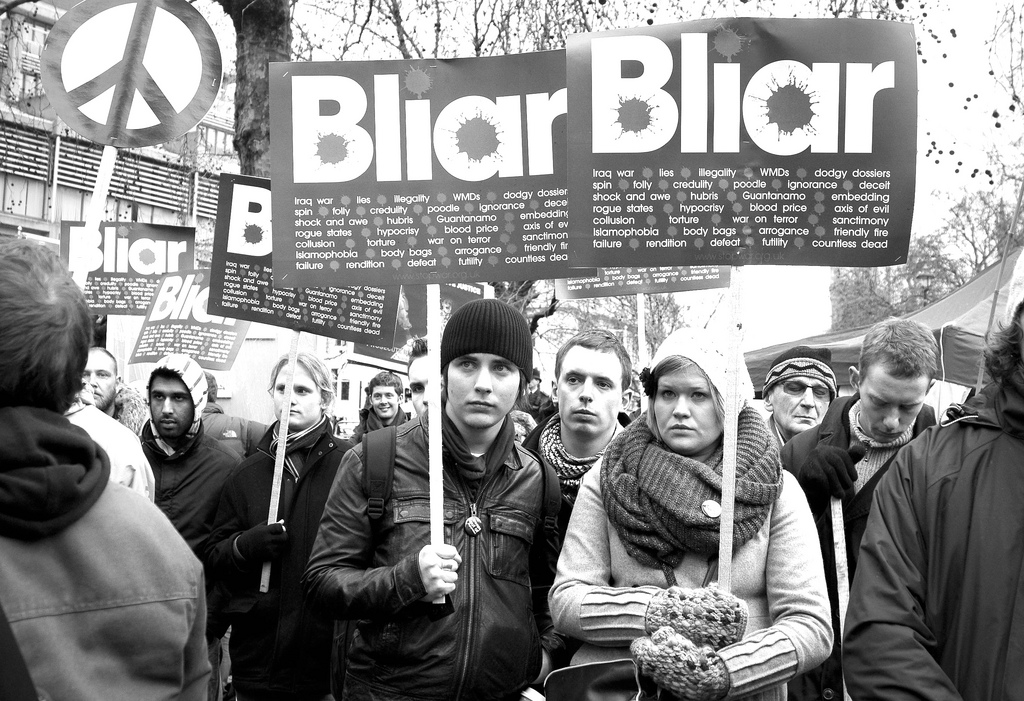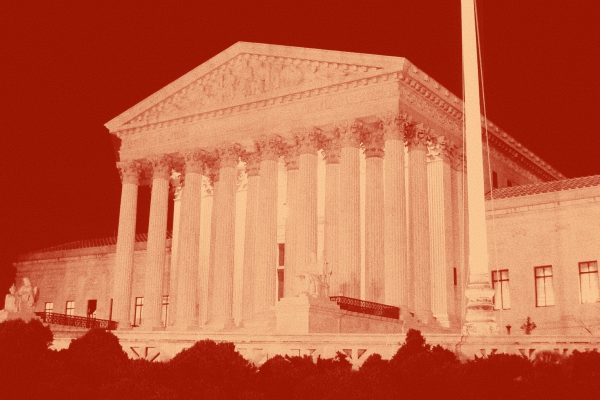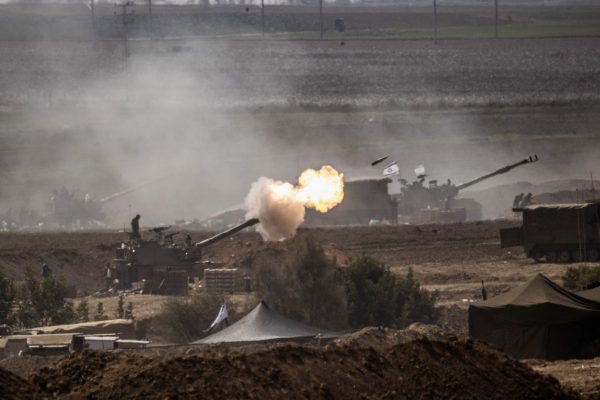Report of the Iraq Inquiry
Committee of Privy Councillors (Chair, Sir John Chilcot)
July 2016
Libya: Examination of intervention and collapse and the UK’s future policy options
House of Commons Foreign Affairs Committee
September 2016
The era of the West’s enthusiasm for military intervention is over. Two reports on Iraq and Libya—written from the heart of the British establishment and published recently—have delivered its obituary. Each is damning; together, they dismember the case for intervention in both its neocon and liberal-hawk variants. Although their focus is almost exclusively on decision-making within Whitehall—the Foreign and Commonwealth Office (FCO), the Ministry of Defence, and, above all, No. 10 Downing Street—Americans will recognize many of the same ills afflicting their own government.
The 2003 Iraq invasion arose from the hubris of neoconservatives. Its ostensible targets: weapons of mass destruction and terrorism. Its ambition: to spread democracy and American-style corporate capitalism. It was long planned, but not, it seems, well planned. Many liberals opposed the Iraq intervention because they disliked its architect and suspected its motives. But they still believed that Western, and especially U.S., military power, used assertively, could make the world a better place.
The 2011 Libya bombing was a swift response by liberal hawks to what most agreed was an imminent massacre. It was both opportunistic—a material interest in Libya’s oil industry, and bolstering French President Nicolas Sarkozy’s faltering political stature were strong motivations—and also a test of the noble doctrine of the “responsibility to protect,” adopted at the United Nations in 2005. The ensuing debacle has been as responsible as the Iraq War for discrediting interventionism—in this case, in its liberal form. Its most obvious consequence has been the refusal of Western powers to act decisively in Syria. But there have been other repercussions too, such as shifting the burden for robust international military actions in Somalia, Mali, and potentially South Sudan to African nations.
The Chilcot report on the Iraq War (so called after the investigation’s chair, Sir John Chilcot) reveals, most notably, that key war decisions were taken solely—during unminuted meetings—by British Prime Minister Tony Blair, who would ignore legal advice he didn’t like and circumvented official procedures for cabinet collective decision-making. The report, which catalogs numerous obfuscations and outright lies of the Blair administration, offers a verdict that is all the more damning because of its laconic understatement: “The circumstances in which it was decided that there was a legal basis for UK military action were far from satisfactory.”
In 2010 the new prime minister, David Cameron, intending to curb some of Blair’s most egregious abuses of power, created the National Security Council (NSC), which requires that security decisions involve all key cabinet ministers and legal counsel. Within months, the NSC was tested by the intervention in Libya. The new system worked well but not faultlessly: Cameron cannot be accused of having made secret promises to foreign heads of state, or of ignoring legal advice and keeping his colleagues in the dark. Unfortunately, though, solving the intra-governmental problem did not make the intelligence or strategy any better. Libya was a disaster too. The Foreign Affairs Committee report, the other which was released this summer, summarized as follows: “President Barack Obama described post-intervention Libya as a ‘shit show.’ It is difficult to disagree with this pithy assessment.”
Intervention is war, and war commands those who choose to fight, however much they believe they are its masters.
Herein lies the crux of the problem. The central failing of military intervention is not coordination, secretiveness, or dishonesty, though these certainly exist. At its core, the problem is the iron law of organized violence: intervention is war, and war commands those who choose to fight, however much they may believe they are its masters. This became evident in both Iraq and Libya in the failure to call a halt to military action when the original objectives had been achieved, the dismissal and denigration of options for negotiation, and the way in which militarism quashed any emancipatory aspirations that may have existed. In each instance, those who believed in quick, clean applications of force were deluded.
This was compounded by a catastrophic limitation of intellect and imagination. Senior politicians and security officials didn’t know much about the countries in which they wanted to intervene. But, rather than conceding this from the outset, they set a policy course based on faulty precepts, biases, and groundless assumptions. And once set on a trajectory of escalation, political leaders would not be deflected—neither by evidence of failure nor, ironically, of success. Barbara Tuchman’s The March of Folly described this syndrome as “from Troy to Vietnam.”
The Chilcot report quotes Tony Blair’s response to its inquiry: “With hindsight, we now see that the military campaign to defeat Saddam was relatively easy; it was the aftermath that was hard. At the time, of course, we could not know that.” The report responds acidly, “The conclusions reached by Mr. Blair after the invasion did not require the benefit of hindsight.” On the contrary, Emma Sky observes that in April 2004, fifty former British ambassadors and senior officials wrote an open letter to Blair noting that every Middle East expert had predicted armed resistance, that policy needed to take into account the history of Iraq, and that coalition military activities needed to be guided by political objectives (rather than tactical security requirements). As the Chilcot report notes, “The risks of internal strife in Iraq, active Iranian pursuit of its interests, regional instability, and Al Qaeda activity in Iraq, were each explicitly identified before the invasion.”
In fact Britain’s Joint Intelligence Committee (JIC) appears to have had fairly accurate assessments on a range of issues related to Iraq prior to the war. However the overall narrative based on this intelligence was crafted by politicians. Thus, whereas the JIC was concerned about nuclear proliferation and terrorism as separate issues, Blair fused the two. In the words of the Chilcot report, “While it was reasonable for the Government to be concerned about the fusion of proliferation and terrorism, there was no basis in the JIC Assessments to suggest that Iraq itself represented such a threat.” The JIC also identified the possibility of al Qaeda establishing a presence in Iraq after military action—a concern that was brushed aside by Blair. Of course, intelligence analysts and managers are public servants who want to please their masters; following the war’s commencement, the JIC’s interpretations consistently erred on the side of supporting established policy positions. Intrinsically, intelligence agencies behave like other large bureaucracies.
The FAC report on Libya tells an unnervingly similar story. The FAC was particularly concerned with how Libya had become a hotbed of terrorism after the overthrow of “Brother Leader” Muammar Gaddafi. One of the FAC witnesses, General David Richards, who was chief of UK defense staff at the time of the intervention, maintained that there was no sense at the time for how UK actions could potentially worsen the dangers posed by terrorist networks.
We asked Lord Richards whether he knew that Abdelhakim Belhadj and other members of the al-Qaeda affiliated Libyan Islamic Fighting Group were participating in the rebellion in March 2011. He replied that that ‘was a grey area’. He added that ‘a quorum of respectable Libyans were assuring the Foreign Office’ that militant Islamist militias would not benefit from the rebellion. He acknowledged that ‘with the benefit of hindsight, that was wishful thinking at best.’ The possibility that militant extremist groups would attempt to benefit from the rebellion should not have been the preserve of hindsight.
Another major lapse took place with the uncontrolled spread of the sophisticated weapons that the Libyan leader had stockpiled during his forty-one years in power. Diverse experts, from intelligence officers to Chadian President Idriss Déby, warned against “opening the Libyan Pandora’s Box.” And yet with regard to British efforts to prevent this from happening, General Richards drew a total blank:
Lord Richards told us that it was a policy objective to secure ex-Gaddafi regime weapons and ammunition in the aftermath of the civil war. However, he could not remember the UK ‘doing anything to achieve it’.
We tend to think that intelligence agencies are rigorous and professional. One of the Chilcot report’s most critical findings is that UK intelligence services—at least at the top—were neither of these things. The report describes how facts were massaged or ignored to fit the “ingrained belief in the UK policy and intelligence communities that Iraq had retained some chemical and biological capabilities; was determined to preserve and, if possible, enhance them to acquire nuclear capabilities; and was able to conceal its activities from UN inspectors.” The report adds, “At no stage was the proposition that Iraq might no longer have chemical, biological, or nuclear weapons or programmes identified or examined by either the JIC or the policy community.”
As is now well known, Saddam Hussein had already dismantled his program of weapons of mass destruction before the invasion. So why would he pretend that he had weapons of mass destruction when he had, in fact, dismantled them as demanded? In order to deter Iran, and to appear strong across the region, Saddam needed to project an illusion of power. His army had been shattered in the 1991 Gulf War. Admitting that he had lost his weapons of mass destruction would be tantamount to conceding that he was defenseless. Not only would this have made Iraq seem vulnerable to Iran, but it would have stripped Saddam himself of his dignity and aura of strength, leaving him exposed to challenges from within his own ranks. How could the leaders in the White House and Downing Street not understand this? Having vilified Saddam, they could not make the necessary leap to see the world from his point of view.
Similarly, while the Libya intervention was intended to protect civilians at risk of massacre in Benghazi, it is likely that the risk of this was greatly overestimated—and that the intelligence community was well positioned to understand this but failed to. What is more, the stated objective of the airstrike—to protect civilians—was accomplished within a day, whereas the bombing continued for much longer.
This is not to say that the threats uttered by Gaddafi were not terrifying: he declared that he would hunt down the rebels “like rats.” However, the FAC inquiry interviewed Britain’s most prominent experts on Libya, including George Joffé and Alison Pargeter, who pointed out that Gaddafi’s rhetoric should not have been taken at face value. The Libyan leader had a long and well-documented history of rhetorical excess but of, in practice, handling his domestic political challenges with care so as not to alienate his domestic support base. The aim of the Libyan “Brother Leader” was to stay in power, and that required a judicious balance of fear, reprisal, and reward, not wholesale slaughter. Joffé told the committee that the fear of the massacre of civilians was vastly overstated.
As Gaddafi’s troops closed in on Benghazi, it is understandable that European leaders were nervous about taking the advice of academics who considered a wholesale massacre unlikely. The memory of the 1995 massacre of eight thousand Bosnian men and boys at Srebenica, whose protection had been promised and betrayed by a battalion of Dutch UN peacekeepers, weighed heavily on Whitehall. Lord Richards told the FAC, “it would be a stain on our conscience forever if we allowed another Srebenica: I remember a lot of talk about Srebenica.” This was a recurring reference point for the forty-something cabinet members, while older officials instead highlighted the need to talk to Gaddafi. The FAC report perceptively remarks, “Given the lack of reliable evidence on which to build policy, British politicians and policymakers may have attached undue weight to their individual and collective memories of the appalling events at Srebenica.”
However, Gaddafi’s intentions quickly became irrelevant because, as the FAC report notes, the very first round of airstrikes meant that the objective of protecting civilians in Benghazi “was achieved in less than 24 hours.” It took a short, sharp action to turn the tide of war. Had France, Britain, and the United States stopped there and opened up political negotiations with the chastened Libyan ruler, the outcome would likely have been better. Indeed, if that had happened, the Benghazi airstrikes might have been celebrated as a fine case of the judicious application of military force in pursuit of both humanitarian and political objectives. But, as too often occurs, once the military behemoth is in motion, it runs the show.
We tend to think that intelligence agencies are rigorous and professional. But UK intelligence services—at least at the top—were neither of these things.
Once this has happened, armed operations become ends in themselves. And such is the craven worship of soldiering by most elected officials that national leaders succumb to the addiction of applause, not least because they find that they can finally get something done. Where this becomes entrenched—as in Washington—generals become celebrities, while politicians and diplomats are tasked with simply giving the army what it says it needs. Thus the Clausewitzean maxim that war is “politics pursued by other means” is reversed, a situation pithily summed up in Richard Holbrooke’s riposte to General David Petraeus: “since when have diplomats become generals’ wingmen?”
In Iraq, tactical military demands repeatedly trumped strategy. In Libya, there was no strategy. As the FAC report notes, “the scale of the threat to civilians was presented with unjustified certainty. US intelligence officials reportedly described the intervention as ‘an intelligence-light decision.’” The goals simply shambled their way into becoming regime change and finding the necessary means to achieve it. The stated justification was that Libyans would not be safe while Gaddafi remained in power.
The Chilcot and FAC reports each demonstrate that their respective interventions were bungled by leaders who were deluded by their own power. The first germ of corruption in these leaders was in their thinking: they believed that they could pursue nakedly self-interested policies, deceiving the public into believing that they were acting for the greater good, and would successfully impose simple military solutions on complex countries about which they knew little. The British Empire was reputedly won “in a fit of absence of mind,” and the neo-imperial pretensions of Britain, the United States, and France have been humbled, at enormous human and material cost, by the hubristic absent-mindedness of leaders, forgetful that other countries have politics and pride too.
The transcripts of the Chilcot inquiry are as compelling as the report itself, with vignettes that leave the reader dumbfounded. An example is the questioning of Emma Sky by Sir Roderick Lyne, one of the members of the inquiry, in January 2011. Sky volunteered to go to Iraq, was told she was going to Basra, but ended up in Kirkuk:
Sir Roderick Lyne: I just wonder if I can come back to the beginning of this conversation just to make sure I’ve really understood it. When you went out there, you say you had no written briefing, no terms of reference, no instructions and you did not have any oral briefing from anybody other than to turn up at [Royal Air Force base] Brize Norton and fly out to Basra?Emma Sky: No.Sir RL: Nothing at all?
ES: No, not before I left the UK.
The questioning continues in the same vein. Sky writes a little later, “I was confident the FCO knew what it was doing. I had just not yet been informed.” Her confidence was misplaced. No one, from Tony Blair on down, had a clue what they were doing in Libya. And Sarkozy, Cameron, and Obama had no answers either.
The Chilcot report explicitly avoided reaching a verdict on the lawfulness of the Iraq invasion on the grounds that it did not have the mandate or expertise to make such a determination. But any reader, following the twists and turns of the Blair government’s legal contortions and evasions, will surely conclude that launching the war was an illegal act of aggression. The FAC similarly did not come to a judgment on whether Libya was a legitimate case of the “responsibility to protect,” but it is safe to say that it makes the self-congratulation of Gareth Evans, the doctrine’s most vocal proponent—who called Libya its total vindication—look foolish indeed.
The saddest conclusion from the two reports is that no leader in London or Washington had the courage to insist on a negotiated political settlement rather than succumbing to the appeal of war. A supplementary conclusion is that, once they had begun to use force, these leaders were not wise enough to recognize its successes and its limits, and call a halt when they had achieved their stated objectives. Instead they pursued war to the point at which it was self-defeating and worse. In both Iraq and Libya, a better outcome was possible, but those in power in Downing Street and the White House were neither wise nor brave enough to pursue that option.








